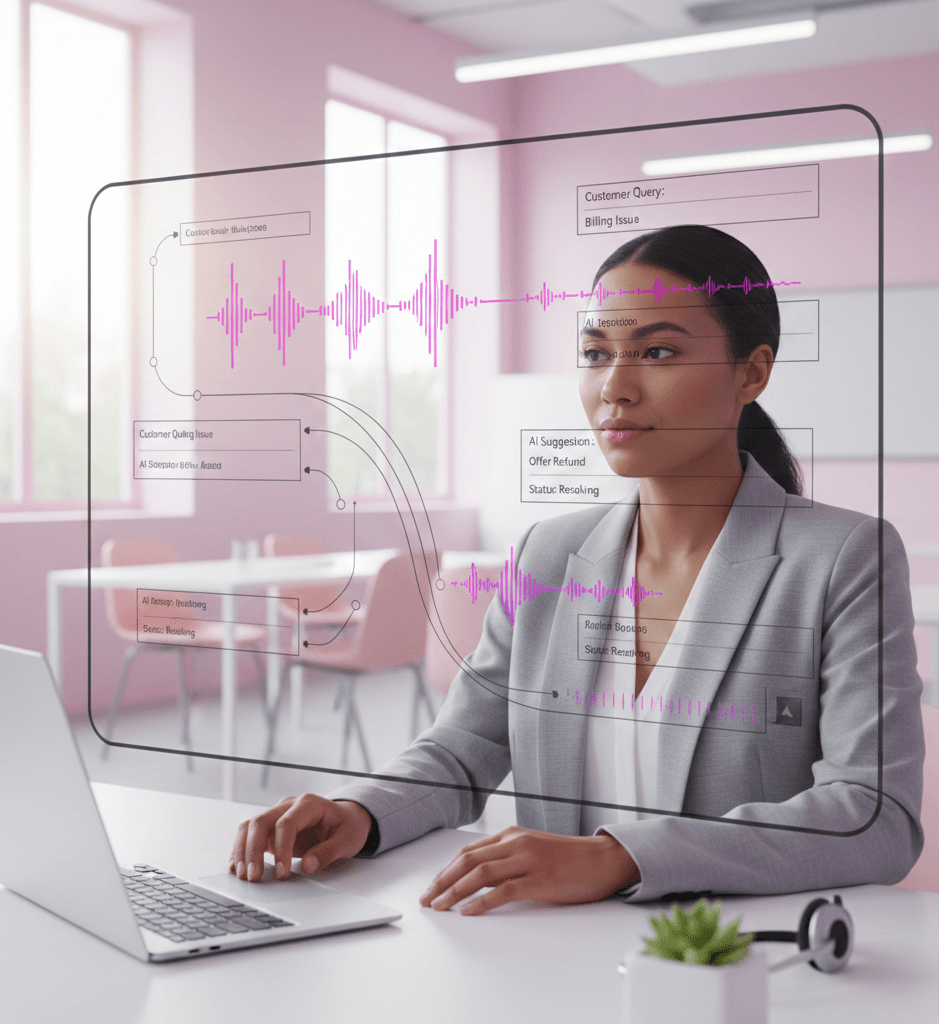“Learn how AI in employee retention boosts job satisfaction and reduces turnover with predictive analytics and personalized coaching.”
Employee retention is critical to business success. High turnover rates result in lost productivity, reduced team morale, and increased recruiting and training costs. Human resources departments have long relied on traditional strategies to improve retention. Still, with the rise of artificial intelligence (AI), companies can now access powerful tools that enhance their ability to retain top talent.
AI-driven tools, such as those provided by SalesCloser AI, transform HR practices. By leveraging predictive analytics, personalized coaching, and engagement tracking, businesses can proactively address issues that lead to employee dissatisfaction and turnover. This blog will explore how AI can enhance employee retention, improve job satisfaction, and foster a supportive work environment.
What is AI in Employee Retention?
AI in employee retention refers to using machine learning, data analytics, and automation to identify factors that lead to employee turnover and implement proactive measures to retain valuable team members. Tools like SalesCloser AI analyze vast amounts of data, detect patterns, and predict which employees are at risk of leaving.
AI doesn’t replace HR professionals. Instead, it enhances their ability to make informed decisions, pinpointing areas of concern and offering actionable insights. By integrating AI into retention strategies, companies can better understand their workforce’s needs and take timely actions to address challenges.
Personalized Coaching: Tailoring Development to Individual Needs
Career development is a critical factor in employee retention. Employees want to feel valued and see clear pathways for growth. Through personalized coaching, AI offers tailored development plans that cater to individual needs.
SalesCloser AI provides tools that assess employees’ strengths, weaknesses, and preferences, creating personalized coaching programs. These AI-driven insights enable managers to offer development opportunities that align with the employee’s career goals. Personalized coaching also helps employees feel more engaged and supported, which reduces the likelihood of them seeking opportunities elsewhere.
The benefits of personalized coaching go beyond career development. By addressing employees’ unique needs, companies can create a work environment where individuals feel understood and valued. This fosters loyalty and a long-term commitment to the organization.
Predictive Analytics: Identifying At-Risk Employees
One of the most potent ways AI enhances employee retention is through predictive analytics. AI tools can identify trends that indicate which employees are likely to leave by analyzing employee performance, engagement levels, and feedback. This gives HR teams the ability to intervene before it’s too late.
For instance, SalesCloser AI leverages predictive analytics to track key indicators of dissatisfaction, such as decreased engagement or performance dips. By flagging these trends early, businesses can implement targeted strategies to address issues and retain valuable employees.
According to a study by the Work Institute, 77% of employee turnover could be prevented with proactive strategies, such as providing more support, growth opportunities, and better engagement efforts. AI tools like those offered by SalesCloser AI can help HR teams pinpoint at-risk employees and address issues before they escalate, ultimately improving retention and saving costs.
Engagement Tracking: Monitoring and Enhancing Job Satisfaction
Employee engagement is closely tied to retention. Engaged employees are more productive, motivated, and less likely to leave. However, monitoring engagement levels across an entire organization can be challenging. This is where AI-driven engagement tracking comes into play.
AI tools, such as SalesCloser AI, monitor employee interactions, feedback, and overall behavior to gauge engagement levels. These tools analyze communication patterns, survey responses, and performance metrics to provide insights into employee engagement.
With this data, HR teams can identify engagement trends, both positive and negative. For example, if an employee’s engagement levels drop significantly, it might indicate dissatisfaction or burnout. Armed with this information, HR can implement strategies to re-engage the employee through additional support, recognition, or new growth opportunities.
Engagement tracking helps create a more dynamic and responsive work environment. Instead of waiting for employees to express dissatisfaction, AI tools help businesses take action before issues escalate.
Creating a Supportive Work Environment with AI
AI is not just a tool for identifying problems; it also helps build solutions. A supportive work environment is critical to employee retention, and AI can assist in creating one. AI fosters a culture of growth and support by providing personalized coaching, real-time feedback, and continuous learning opportunities.
SalesCloser AI helps HR teams understand what employees need to feel supported. Whether it’s flexible work arrangements, learning opportunities, or mental health resources, AI can analyze trends across the workforce to identify areas for improvement. By doing so, companies can create an environment where employees feel heard, valued, and motivated to stay.
AI also helps reduce the administrative burden on HR teams. By automating routine tasks such as scheduling, performance reviews, and feedback collection, HR professionals can focus on strategic initiatives that directly impact employee retention. This shift from administrative work to value-added tasks allows HR teams to play a more active role in shaping company culture and employee satisfaction.
Success Stories Using SalesCloser AI
Businesses across various industries already see the benefits of integrating AI into employee retention strategies. For example, a leading tech company struggled with high turnover rates in its sales department. After implementing SalesCloser AI, they noticed significant improvements in employee retention.
The AI tools provided personalized coaching to their sales team, offering tailored growth opportunities based on each employee’s strengths and areas for improvement. Predictive analytics flagged employees at risk of leaving, allowing HR to address issues before they escalated. Engagement tracking further helped managers monitor job satisfaction, ensuring that employees felt valued and motivated.
Within six months, the company saw a 25% reduction in turnover rates, along with improved job satisfaction scores. By leveraging AI, they created a more supportive and engaged workforce, leading to better performance and reduced costs associated with employee churn.
Another company in the healthcare sector implemented SalesCloser AI to enhance retention within their nursing staff. Nurses are often at high risk of burnout due to the demanding nature of their jobs. By using AI to monitor engagement levels and identify at-risk employees, the healthcare provider was able to offer targeted support and interventions, such as additional training or flexible work schedules. This proactive approach resulted in improved retention rates and reduced burnout among their staff.
The Future of AI in Employee Retention
AI is set to play an even bigger role in HR as businesses increasingly recognize the value of data-driven decision-making. As AI tools become more advanced, they will offer even deeper insights into employee behavior, making it easier for companies to retain top talent.
For example, future AI advancements may include even more sophisticated predictive analytics, enabling HR teams to forecast long-term retention trends. Additionally, AI tools could incorporate sentiment analysis, providing real-time insights into employee moods and morale, allowing businesses to make immediate adjustments to improve satisfaction.
Companies that invest in AI-driven retention strategies today will be better positioned to attract and retain top talent in the future. By integrating tools like SalesCloser AI, businesses can not only reduce turnover but also foster a more motivated, productive, and engaged workforce.
Conclusion
AI offers powerful tools for improving employee retention. By leveraging predictive analytics, personalized coaching, and engagement tracking, businesses can proactively address issues that lead to turnover. SalesCloser AI provides HR professionals with the insights and tools they need to create a supportive work environment where employees feel valued and engaged.
As more companies adopt AI-driven retention strategies, those that fail to keep up risk losing their competitive edge. Investing in AI tools today can lead to long-term benefits, including higher employee satisfaction, reduced turnover, and a more productive workforce.
If you’re looking to improve employee retention and foster a supportive work environment, consider integrating AI-driven tools like SalesCloser AI into your HR strategy. With SalesCloser’s use cases, custom sales demos, and advanced AI solutions, you can transform your workforce, keeping your top talent engaged and motivated for years to come. Explore the full range of solutions at SalesCloser AI.






